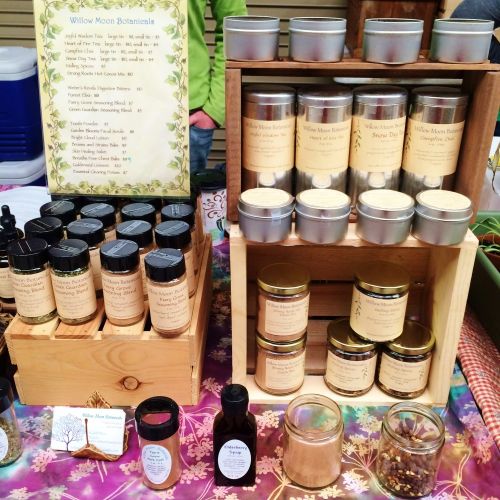Blog
Handcrafted Skin Care – 5 Things to Watch Out For
There has been a movement of late toward ‘handcrafted’, ‘all-natural’, ‘small batch’, ‘artisanal’ and ‘hand-made’. Whether it’s cosmetics, food or beverages, the implication is that these products are somehow superior or safer for you to consume. While this may very well be the case in some instances, it’s not always true. Shop All Apothekari When it comes to handcrafted skin care products, you may want to consider a few things before you jump on the bandwagon. Where Was The Small Batch Product Produced? While there is nothing inherently wrong with whipping things up in your kitchen, a kitchen is quite different to a dedicated manufacturing facility. Labs that produce cosmetics for retail purposes (or commercial kitchens that prepare food) are often government inspected and must prove that they follow stringent protocols to ensure the safety of the end product. Wiping down the counter with rubbing alcohol isn’t good enough! Quality Control. Can you guarantee that each batch is the same? A solid formulation, proper equipment and knowledge regarding ingredient sourcing help to ensure that the tenth batch is the same as the first one. If policies and procedures aren’t adhered to, there is no way to guarantee that every batch will be the same. Contamination/Safety. Whether from unhygienic equipment or surfaces; tainted ingredients or improper preservation, there is always the risk for contamination. While this is true even for experienced producers, the chances of contamination increase with individuals who are less experienced. Contaminated skin care products not only smell and look bad, they may also contain bacteria, mold or fungi, making them downright dangerous to apply to your skin. Preservative free products sitting out in the sun all day? Um, no thanks! Elegance. Otherwise known as a pleasing texture, small batch cosmetics often feel thick, heavy and greasy. Not always, but in general, I have not been impressed by products whipped up by home crafters. I’m not sure whether it’s inexperience, the choice of ingredients or lack of proper equipment that leads to this, but if it doesn’t feel good on my skin, I’m not going to use it. No matter how safe it claims to be. Efficacy. Many handcrafted skin care lines focus on being ‘natural’. Natural isn’t a regulated word so it can mean anything. Yes, it may be safe, but is it really doing anything for your skin? Before you believe the claims, check out the ingredient list to make sure you’re getting what you’re paying for. I love summer with its many outdoor events including festivals and markets and I always have a blast checking out local vendors who often set up stalls. Whether it’s beautiful jewelry, pottery, or decadent desserts, I love to wander and sample – it’s exciting to discover something new and feels good to support a small, local business if I can. I like to peruse handcrafted skin care products as well, but I’m very cautious about what I purchase because I understand the process behind creating safe and effective products. I hope that this post has helped you too.
Learn moreHow To Develop A Skin Care Formula
I know a lot about skin and skin care, but when it comes to creating and manufacturing a skin care formula, it’s time to get the experts involved. Cosmetic formulation is a complex science and despite a solid science background courtesy of my Pharmacy degree, I have nowhere near the kind of expertise or equipment required to devise and manufacture a safe and effective skin care formula. That’s one of the reasons why I’m not whipping up things in my kitchen! Shop All Apothekari You Need A Chemist! When it comes to introducing treatments to the Apothekari line-up, I know what I want. It’s important to deliver products that are both safe AND effective. To this end, I’m comfortable with choosing which ingredients should and shouldn’t be in formulations. I spend lots of time researching by reading scientific papers, pouring over clinical studies and by talking to formulation chemists. Most chemists possess strong science backgrounds, often with a Masters or PhD degree. They also have extensive practical experience in developing and creating effective, safe and stable preparations. Working with a good chemist is key to not only developing formulas and manufacturing great products but also to keep up to date with new developments in formulation, novel ingredients and cutting edge technology. Chemists may send me samples that they are playing with to see if I like how they look, feel and smell. This helps me to refine our offerings at Apothekari and to consider the introduction of new products. While it’s tempting to think of all the money you’ll save by creating your own skin care concoctions, there are many things to consider. Some recipes are terrific for DIY. In addition to it being fun, you can also save yourself a bit of cash and I’d never suggest that you should shy away from enjoyable projects like facial masks, which you will use immediately and not keep long term. However, when it comes to more complicated serums, which contain lots of active ingredients and an array of botanicals, sunscreens or treatments designed for around the eyes, it’s probably best to leave it to the experts unless you know what you’re doing. In addition to the possibility of creating something that just doesn’t work, you may also end up with a skin care formula that is downright dangerous. Here are just some of the considerations involved in designing a skin care formula that is safe, effective and pleasing to use: Are The Ingredients Supported By Science? Are they found in the right concentrations to deliver their action? Will The Product Maintain Its Integrity Over Time? Will it separate or clump? Is the Preparation Adequately Preserved? Most skin care products should contain preservatives to prevent contamination with bacteria, mold and fungi. Does the Formulation Make Sense? For example, will the combination of ingredients work well together? Can we cut something out? Add something different in? Is the pH Optimal for Efficacy? Can you Mix the Ingredients Together? For example, you may want to mix oil soluble and water soluble ingredients together. This is possible, but you will require additional ingredients like emulsifiers or solubilizers to keep the formulation intact. If you don’t, the mixture will separate and become unappealing and unusable. Do you Have the Right Equipment? While not always necessary, some formulations require heaters, high speed mixers or other specialized tools. Additionally, you need a clean environment – something like a dedicated lab and not your kitchen counter. It May be Effective but is it Pleasant to Use? While many ‘hand-crafted’, natural and/or artisanal skin care products are lovely, many more are heavy, greasy and not at all what most of us would want to put on our skin! I’m sure that I’ve missed several aspects regarding formulation, but I hope that this post provides a bit of insight into the complexities involved with creating products that deliver results. Let me know what you think.
Learn more


